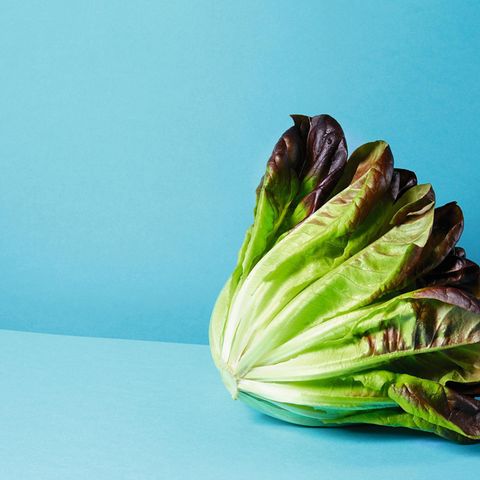What happens if…
What it really does for your health to avoid sugar
Copy the current link
Sugar is delicious and helps with energy holes and low moods. But it is also unhealthy. What effects does high sugar consumption have on the body and what effects does avoiding sweets have?
A donut here, a scoop of ice cream there – sweets are good for the mood and give you energy. That’s why we crave it especially when we’re stressed or need a mood booster. However, the effect only lasts for a short time. And in the long term, high sugar consumption is detrimental to health and is suspected of promoting diseases such as diabetes, obesity, Alzheimer’s and depression.
The World Health Organization (WHO) and the German Nutrition Society (DGE) recommend that sweets should not make up more than ten percent of children’s daily calorie needs. For adults it is a maximum of 25 to 50 grams of sugar. That’s about three to six teaspoons. Maximum – but ideally as little as possible. In fact, Germans consume an average of 95 grams of sugar per capita per day. No wonder, after all, such sugar, including honey, syrup, fruit juice and agave syrup, is found in almost all foods – including sausage and bread.
Is sugar addictive?
Avoiding sugar is in. People report on their self-detox experiments on social media, blogs and YouTube. They talk about pounding headaches and extreme tiredness at the beginning, but also about a boost in energy and better sleep after a few days of abstinence from sugar. Can this be?
Whether sugar is addictive or not is a controversial topic in science. There are also factors that speak against it. While researchers have observed that rodents experience withdrawal symptoms when they are deprived of sugar, there is no such evidence for humans yet. Headaches are often reported in connection with avoiding sugar, but studies do not prove this. Instead, it was found that people who thought they were consuming sugar but were actually receiving sweeteners did not complain of headaches. So are these supposed withdrawal symptoms nothing more than a product of our imagination?
Not necessarily. Sweets activate the reward system in our brain. Dopamine is released, which is also known as the happiness hormone. The result: The increase in dopamine levels makes us feel better. If the dopamine push is lost, it affects our mood.
Sugar causes high feelings and energy holes
At the same time, sugar consumption can also trigger a sugar high, because the increase in blood sugar levels makes us feel more awake for a short time and our mood improves. The blood sugar level is downregulated by the release of insulin. If the blood sugar curve rises very steeply due to consumption of high-sugar products such as soft drinks, a spike in blood sugar occurs, which in turn leads to a higher release of insulin and a very rapid drop in blood sugar levels. As a result, we sometimes fall below our normal value, and the body counteracts this with adrenaline. Among other things, this can lead to us feeling stressed on the one hand and cravings on the other. A condition also known as “hangry”.
There is also the matter of getting used to it. If we change our diet as part of our sugar abstinence and suddenly only eat hearty foods instead of sweets, then our blood sugar curve will not rise as much as usual after eating. The body and brain first have to get used to this situation. Especially at the beginning of this adjustment period, it is conceivable that a feeling of exhaustion and general malaise will set in.
Avoiding sugar has these effects in the short and long term
- We taste different: After just a few days, the brain adapts to the changed sugar consumption. This has an impact on the taste perception – it becomes more refined and sweetness is perceived intensively even in small quantities. The longer you avoid sugar, the greater this effect becomes. People who have previously consumed a lot of sugar also notice it more strongly than those who have already consumed little sugar.
- Bye, bad breath: Mouth bacteria love sugar, and for many it is the basis of their diet. If they are deprived of this, their reproduction is also reduced. The fewer odor-causing bacteria there are in the mouth, the fresher the breath.
- Blood pressure drops: Blood pressure drops in the first two weeks. How strong the effect is also depends on the level of sugar consumption beforehand. Some people therefore notice little or nothing of the lower blood pressure, others develop circulatory problems during this time and feel tired and weak. Once this transition period is over, avoiding sugar leads, among other things, to an increase in energy and better sleep.
- The kilos fall off: Avoiding sugar can lead to weight loss after just about a week. Several studies point to this. This is due, among other things, to insulin, which is released in response to the increase in blood sugar levels. Because insulin blocks fat burning. “In the short term, avoiding table sugar prevents you from experiencing a rapid and sharp rise in blood sugar levels. Your pancreas only needs to release a small amount of insulin to transport the sugar into the cells. This means that excess blood sugar is not created, which would otherwise turn into fat in the liver and fatty tissue is converted,” explains nutritionist Claus Leitzmann.
- The inflammation levels decrease: Studies have shown that sugar consumption can also cause some levels of inflammation in the blood to rise and correspondingly fall if you avoid it. Avoiding sugar can also help reduce inflammation in the body.
- The body rehabilitates itself: After just ten to 14 days it becomes apparent that the body is recovering. This also means that certain physical complaints caused by too much sugar can be alleviated or even reversed. Improvements were observed in people with fatty liver disease or insulin resistance.
A short-term radical avoidance of sugar is of no use to your health in the long term. A seven-day abstinence is a nice attempt, but if you then eat as much sugar as before, you have gained nothing. It is better to change your diet so that sugar consumption is permanently lower. As is often the case: the quantity makes the poison.
What happens if
Source: Stern
I’m Caroline, a journalist and author for 24 Hours Worlds. I specialize in health-related news and stories, bringing real-world impact to readers across the globe. With my experience in journalism and writing in both print and online formats, I strive to provide reliable information that resonates with audiences from all walks of life.






